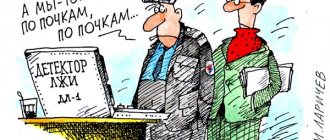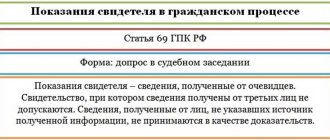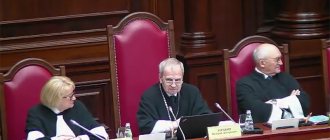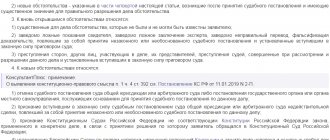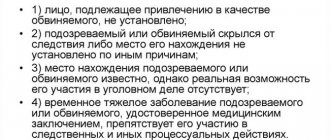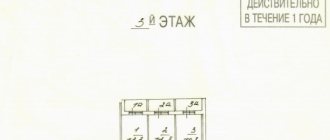How can a witness become familiar with a criminal case?
The procedural status of a witness in a criminal case is reflected in the norms of the Criminal Procedure Code of the Russian Federation, in Article 56.
By virtue of this law, a witness is a person who may be (or already know) any circumstances of a criminal case, including information about other persons participating in the case.
A person who is a witness, as a rule, is summoned by the investigator (inquiry officer, court) for questioning and other procedural and investigative actions, by a summons that is sent to him by mail, or is handed in person against a receipt.
A witness, like other participants in a criminal case, has a number of procedural rights and obligations. In particular, the witness does not have the right to avoid appearing before the investigative authorities or in court, and also does not have the right to refuse to testify or give false testimony.
However, after an interrogation or other investigative actions with the participation of a witness, the question arises: HOW TO READ THE PROTOCOLS OF INVESTIGATIVE ACTIONS AND GET COPIES OF THEM IN YOUR HANDS?”
The right of a witness, as a participant in a criminal case, to familiarize himself with the named procedural documents, unfortunately, is not specified in the Criminal Procedure Code, and this, as we see it, is a big gap in the criminal legislation of Russia. At the same time, the absence of a direct reference to such a right in the law makes it possible for investigative and judicial authorities to arbitrarily refuse to familiarize a witness with documents and materials affecting his interests as an individual. But a witness is a key figure in a criminal case, and his rights must be respected no less than the rights of the victim and the accused.
And here we need to turn to the Constitutional provision reflected in Part 2 of Article 24 of the Constitution of the Russian Federation. By virtue of this article, state authorities and local government bodies, their officials are obliged to provide everyone with the opportunity to familiarize themselves with documents and materials that directly affect their rights and freedoms.
Witness in trial
Leonid Evstafievich Vladimirov
The medieval philosopher William of Ockham (known primarily for the extremely useful rule for legal technology “not to create entities unnecessarily”) formulated another – procedurally important – principle: “nothing should be accepted without reason unless it is known either as self-evident or from experience"[1]. Subsequently, this rule was called the law of sufficient reason.
The purpose of the court is to resolve the dispute and bring legal certainty to the relationship between the parties. This is achieved by the procedure of proof, that is, by providing the disputing parties with a factual basis for their statements. That is, what is called the law of sufficient reason, which, in turn, serves as the logical beginning of reliability (principium evidentiae).
A very common type of evidence is witness testimony. But if in a criminal trial the main problem is to establish possibility and probability (what exactly the witness saw and whether he could have seen it at all), then in a civil trial everything is somewhat more complicated. Below is the decision of the Governing Senate, which addresses the issue of witness testimony.
***
The peasant Trushalov sought 68 rubles from the peasants Vasily and Gerasim Antonov. for hemp sold to him by their deceased father, Haggai Antonov, and not delivered to him, and 65 rubles. 50 kopecks losses caused to him by non-delivery of cannabis, citing witnesses as evidence of the claim. Magistrate Judge 1 of the Oryol district, having seen from the testimony and explanations of the defendant Vasily Antonov, that the Antonovs’ father really owed Trushalov 69 rubles, for which he promised to deliver 9 quarters of hemp, and that the price of hemp rose to 9 rubles. 15 kopecks, based on Art. 81 Set. Gr. Court. and 684 X T. 1 hour, ordered the Antonovs to return 68 rubles to Trushalov. and 1 rub. 65 kopecks for each of 9 quarters, only 82 rubles. 85 kop. The Oryol Congress, having considered the case on the defendants’ appeal and finding that, by virtue of Art. 409 Set. Gr. The court, the testimony of witnesses cannot be recognized as evidence of Trushchalov’s claim, overturned the Judge’s decision and denied Trushchalov’s claim. In his cassation appeal against this decision of the Congress, Trushalov explains: 1) that, by recognizing his claim as unproven, the Congress violated Art. 81 Set. Gr. Court., and 2) that, by eliminating testimony as evidence of the claim, the Congress violated Art. 409 Set. Gr. Court., since the purchase of hemp from Antonov and the failure to deliver 9 quarters of the purchased goods can be satisfied by the witnesses.
Having heard the conclusion of the Comrade Chief Prosecutor, the Governing Senate finds that, according to Art. 409 Set. Gr. Court, witness testimony cannot serve as evidence only of those events for which written evidence is required. Applying this law to any dispute, the court first of all (based on Articles 129 and 339 of the Constitution of the Civil Code) is obliged to determine which events constitute the subject of the dispute, and then enter into consideration of the question of what evidence these the controversial events can be proven by law and what evidence is presented in support of them in this case. In the present case, plaintiff Trushalov, referring to witnesses, argued that Haggai Antonov sold him hemp, received money for it, but did not give him all the goods sold; The congress, without discussing at all which of these events is refuted by the defendant and, therefore, appears disputable, found that witness testimony cannot be recognized as evidence of Trushchalov’s claim, while the sale of movable property, under Art. 710 X T. 1 part of the St. Law, can be committed without a written act and, therefore, if the defendant challenged the sale of hemp, the plaintiff had the right, under Art. 409 Set. Gr. Court., prove the sale by reference to witnesses; Likewise, the transfer of sold movable property to the buyer and the payment of money to the seller for this property, under Art. 1510 and 1521 X T. 1 part of the Holy Law, does not require written certification and in case of a dispute can be proven or disproved by the testimony of witnesses. Finding, therefore, that the Oryol Congress, having applied Art. 409 Set. Citizen The court, without proper explanation of what particular event in this case cannot be proven by reference to witnesses, committed a violation of the exact designated article of the Charter, the Governing Senate determines: the decision of the Oryol World Congress, on the violation of Art. 409 Set. Gr. Court., cancel and transfer the case for consideration to the Mtsensk Congress of Magistrates.
***
So the Senate made two important points.
1) Before making a decision, the court must clearly understand what exactly the dispute is about. There were no special rules on preparing a case for hearing, as is done in the modern Code (Articles 148, 150, 152)[2], in the Charter of Civil Proceedings; from the wording of the mentioned 129 and 339 articles[3], the rule of preparation could only be derived through judicial interpretation, which is what the Senate did in this decision.
2) And the main question: is testimony applicable in all cases? In this case, Article 409 of the Civil Code of Civil Code, mentioned more than once by the Senate, was established: witness testimony can be recognized as evidence only of those events for which, by law, written certification is not required[4]. This rule was supplemented by the following - 410 - article on the prohibition of refuting the contents of written acts by the testimony of witnesses (Roman maxim contra scriptum testimonium non scriptum testimonium non fertur - Code, 4.20.1).[5]
Since written form is not required to complete a transaction for the sale and purchase of movable property, there is no reason to limit the evidence base only to documents, as the Senate pointed out in this case.
The question of the applicability of witness testimony was considered very important. For example, in the 2nd volume of Isachenko’s commentary, devoted entirely (1038 pages) to the issue of evidence (Articles 366-565), the commentary to Article 409 occupies 127 pages (from 219 to 346), or 12% of the text (commentary to the main article - 366 – the article on the burden of proof – “only” 65 pages).
In a number of decisions, the Senate formulated other rules for testimony: “it is prohibited to refute by testimony the essence of legal transactions concluded in written acts, but the court is not deprived of the right to resort to testimony to bring to light the existence of such events, circumstances or facts that preceded or accompanied the completion of the transaction" (decision of 1867 No. 122); and on the proof of negative facts by witnesses (decision of 1907 No. 112): “the circumstance (that the testator never had children) as negative cannot be reliably known to the witnesses.”
In light of the above, one cannot help but recall the very relevant debates about the so-called before the privatization of housing and the Housing Code of 2004. recognition as having lost the right to use residential premises. They were based on the fact that one of the family members living (registered) in this apartment allegedly stopped using it and therefore lost the corresponding right. In confirmation of this circumstance, witnesses were cited (usually neighbors), who said that the defendant “does not live here,” or they have not seen him for the last time (week, month, year, etc.). The fact that the question is about changing the lease agreement, and that the landlord is a housing maintenance organization, and only it, as a party to the agreement, can bring such a claim was not taken into account.
[1] William of Ockham. De sacramento altaris, ch. 28.
[2] Unfortunately, the courts take a very formal approach to this issue, limiting all preparation to setting a hearing date.
[3] Here is article 339: the court's decision must be based on documents and other written acts presented by the parties, as well as on the arguments expressed during oral argument. It is curious that here (this article regulates the decision of general courts; article 129 - magistrates' rulings) the Charter says nothing about witness testimony. Evidence is not the testimony of witnesses; arguments are “a legal assessment, a critical analysis of evidence carried out by the parties, considerations through which the connection and relationship of the proven facts to the claim and defense is established” (Grigory Leontievich Verblovsky, Movement of Russian civil procedure, outlined in one example, M., 1905, p. 43); “abstract explanations and illumination from a certain point of view of the circumstances of the case and evidence supporting or refuting them” (Vasily Lavrentievich Isachenko, Civil Procedure. Practical commentary on the second book of the Charter of Civil Proceedings, volume 1, St. Petersburg, 1909, p. 774).
[4] The following are three exceptions—two involving force majeure and one involving “quiet, undisputed, and uninterrupted” possession or enjoyment of real property during the statute of limitations.
[5] Iering said that “the strengthening (fixirung) of an action in a person’s memory is less precise than on paper, extends only to the meaning, and not to the words, which sometimes have enormous meaning.” On the essence of legal formalism in general (from Igering). Journal of the Ministry of Justice, 1860, vol. V, part II, p. 386.
Useful tips for witnesses related to their questioning
1) It is necessary to appear for questioning before the investigator on the basis of a summons (usually this is how it works in practice: the investigator calls the witness and informs him that he needs to appear for questioning, while discussing the date and time of appearance. In order for you to gain time, you need to appear according to the summons that the investigator will send you, this way you will gain some time and be able to find yourself a good lawyer; 2) you need to use the services of a lawyer, do not refuse him, because you can talk yourself into an article and subsequently change the status of a witness to a suspect (there are different situations ); 3) think over your line of defense in advance with a lawyer and think about the answers to the questions that the investigator may ask you during interrogation; 4) the witness must remember that he has witness immunity, that is, he can refuse to testify against himself, his spouse and his close relatives. So, if you understand that the questions that the investigator asks you concern your personality, the personality of your spouse and your close relatives, and you cannot answer such a question without special preparation, then you should take advantage of witness immunity and refer to Art. 51 of the Constitution; 5) the witness must answer the questions posed by the investigator briefly and to the point; if you do not understand the investigator’s question, then ask again, ask him to repeat the question and answer it;
6) remain calm and do not worry during interrogation, as this can affect your answers extremely negatively;
7) be sure to study the protocol of your interrogation, read it carefully, see if the investigator recorded your testimony correctly, so that there are no errors; if there are any, then demand that the investigator correct everything and record everything correctly; Do not sign the protocol without reading it at all, as this is fraught with extremely negative consequences for you.
Do not sign the protocol without reading it at all, as this is fraught with extremely negative consequences for you.
That's all, thanks for your attention!
I ask the lawyers reading my article to supplement it with their answers in the comments, I will be very interested to read your answers!
Criminal liability for a witness
A witness may be brought to criminal liability in the following cases provided by law:
1) For refusal to testify, since giving truthful testimony during interrogation by an investigator is a procedural obligation of a witness. As I already indicated above, the witness has witness immunity (he has the right to refuse to testify against himself, his spouse and his close relatives). For refusal to testify, a witness is subject to criminal liability, which is established by Art. 308 of the Criminal Code of the Russian Federation (literally recently I wrote on this topic, so I recommend reading it at the link).
2) For disclosure of the results of the preliminary investigation, if the witness was warned in advance about the non-disclosure of the results of the preliminary investigation in the manner prescribed by law. For disclosing the results of the preliminary investigation, the witness may be held criminally liable under Art. 310 of the Criminal Code of the Russian Federation. Disclosure of the results of a preliminary investigation constitutes making such results public, despite the prohibition of non-disclosure, which is supported by a procedural act.
If the investigator did not warn the witness about the non-disclosure of the results of the preliminary investigation and the ban was not formalized properly, then the crime under Art. 310 of the Criminal Code is absent in this case and it is impossible to bring the witness to justice.
3) For knowingly false testimony, a witness may be brought to criminal liability under Art. 307 of the Criminal Code of the Russian Federation. Testimony is considered false if it does not correspond to reality completely or in any part.
Compensation for expenses of a witness
The witness may be compensated for amounts to cover expenses associated with appearing at the place of investigative actions, as well as amounts to cover travel expenses, rental of living quarters and expenses associated with living outside the witness’s place of residence. In addition, the witness may be compensated for the amount of wages he lost for the time spent by him in connection with the summons to the investigator, interrogating officer or to the court.
Witnesses who do not have a regular salary may be entitled to compensation for taking them away from their normal activities.
What happens if the witness does not appear when called by the investigator?
If a witness was duly notified of appearing before the investigator to carry out an investigative action, but he did not appear before the investigator without good reason, then he may be subjected to forcible delivery (bringing) to the investigator for carrying out an investigative action. In this case, the investigator makes a decision to bring the person, and the arrest is carried out directly by the employees of the inquiry agency. How does this happen? Employees of the operational unit (investigative officers from the criminal investigation department or detectives from the Department of Economic Security and Commissariat of Crime) arrive at your place of residence and with the words: “Citizen, you must go with us to the investigator,” they introduce you to the investigator’s decision to bring you in, after which you must go with them to to the investigator.
